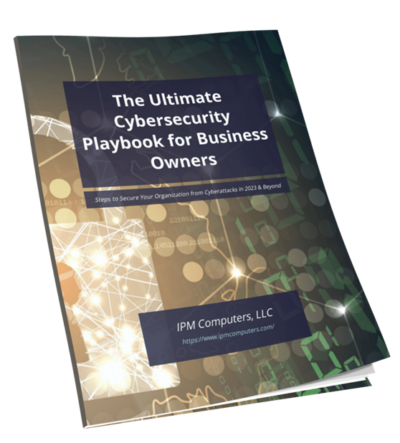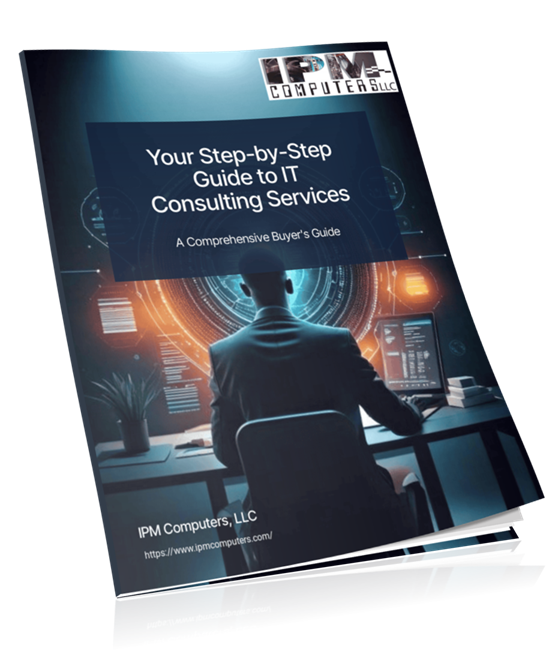Myrtle Beach managed services provide small business owners with comprehensive support in managing their technology needs. These services encompass a wide range of IT functions, including:
- Network monitoring
- Data backup and recovery
- Cybersecurity
- Software updates
Technology is the foundation of every aspect of business operations, driving productivity and competitiveness. By outsourcing IT and working with trusted Myrtle Beach IT consulting specialists, you can ensure that your systems run smoothly without the burden of maintaining an in-house team.
This strategic move not only enhances efficiency but also positions your business for growth in an increasingly digital landscape.
Understanding Managed IT Services
Managed IT are a set of IT solutions designed to improve business operations. They include:
- Network management
- Cybersecurity measures
- Data backup and recovery
- Software updates
These services are provided by Managed Service Providers (MSPs), organizations that specialize in delivering proactive IT support to businesses. MSPs take on the responsibility of managing an organization’s IT infrastructure, allowing you to focus on core activities.
Proactive IT support means that MSPs identify potential problems and implement solutions without waiting for disruptions to occur. This approach significantly reduces downtime and enhances productivity.
By leveraging the expertise of MSPs, small businesses gain access to advanced technology and ongoing support, all while keeping costs predictable and manageable. The integration of these services positions your business for success in a competitive landscape.
Benefits of Managed IT Services for SMBs
1. Cost Efficiency
Managed IT services provide a strategic financial advantage for small businesses. By outsourcing IT management, companies can achieve substantial cost savings compared to maintaining in-house teams.
- Fixed Monthly Fees: Managed Service Providers (MSPs) typically charge a fixed monthly fee, which covers comprehensive IT support. This predictability helps businesses budget effectively and avoid unexpected costs associated with hiring and training staff.
- Elimination of Overhead Costs: In-house IT teams incur expenses such as salaries, benefits, and training programs. Outsourcing eliminates these overheads, allowing resources to be allocated more efficiently elsewhere.
- Access to Advanced Technology: MSPs often utilize the latest tools and technologies, which may be financially prohibitive for small businesses when purchased independently. This access enables smaller firms to stay competitive without the burden of significant investments.
- Scalability: As your business grows, so do your IT needs. Managed services offer scalable solutions that can easily adjust to changes in demand without the need for extensive re-investment in personnel or systems.
- Reduced Downtime: Proactive monitoring and maintenance by MSPs minimize downtime by addressing potential issues before they escalate into costly problems. Less downtime translates directly into increased productivity and profitability.
The cost efficiency gained through managed IT services allows small business owners to focus on core activities while leveraging specialized expertise to optimize their technology infrastructure. By strategically aligning IT services with business goals, you create a framework for sustainable growth and success.
2. Increased Productivity
Outsourcing IT management to MSPs can significantly boost business productivity. Here are key aspects to consider:
- Focus on Core Functions: By delegating IT responsibilities, small businesses can concentrate on their primary objectives, enhancing efficiency and effectiveness in operations.
- Reduced Downtime: Proactive monitoring by MSPs minimizes system failures and downtime, allowing employees to work without interruptions.
- Access to Expertise: MSPs provide a team of experienced professionals with specialized skills. This access helps businesses implement advanced technology solutions that improve workflow and productivity.
- Streamlined Processes: Automation tools offered by MSPs standardize tasks, resulting in consistent outputs and better resource allocation.
Investing in managed services translates into cost savings by eliminating the need for in-house teams while simultaneously enhancing operational efficiency through streamlined IT processes.
3. Enhanced Security Measures
Small businesses are increasingly targeted by cybercriminals, making it crucial to have a strong security plan in place. MSPs offer various solutions to protect your business from potential attacks. Here are some key cybersecurity services they provide:
- Firewalls: These act as barriers between your internal network and the outside world, monitoring incoming and outgoing traffic to block any unauthorized access.
- Encryption: This technology ensures that sensitive data is locked and can only be accessed by authorized individuals, both when it’s being transmitted and when it’s stored.
- Intrusion Detection Systems: These systems keep a close eye on your network activities, looking for any suspicious behavior and sending alerts if they detect anything unusual.
Having a solid cybersecurity strategy is extremely important. Just one data breach can lead to massive financial losses and harm your reputation. By outsourcing your IT management to MSPs, small businesses not only gain better security but also save money compared to having their own in-house teams.
These providers have specialized knowledge and can use the latest security technologies that might be too expensive for smaller companies to afford on their own. By prioritizing cybersecurity, you can concentrate on running your business while staying safe from cyber threats.
Key Features to Look for in a Managed Service Provider
1. Network Monitoring for Performance Optimization
Continuous network monitoring is a crucial feature of managed services. This proactive approach is essential for identifying and resolving issues before they escalate and disrupt business operations.
Benefits of network monitoring include:
- Real-Time Insights: Receive immediate alerts about potential problems, allowing for swift action to mitigate downtime.
- Performance Metrics: Track network performance through detailed analytics, ensuring that systems operate at optimal levels.
- Resource Allocation: Optimize the use of bandwidth and resources, leading to enhanced efficiency.
With network monitoring, MSPs can ensure that your IT infrastructure runs smoothly. Regular assessments help in pinpointing vulnerabilities and bottlenecks that could hinder productivity. By leveraging advanced tools and techniques, MSPs provide a comprehensive overview of your network status, enabling informed decision-making.
The significance of this feature cannot be understated. When you outsource your IT management to experts who specialize in continuous monitoring, you gain peace of mind knowing that potential issues are being addressed proactively. This not only enhances system reliability but also allows your team to focus on core business functions without worrying about IT setbacks.
2. Importance of Data Backup and Disaster Recovery Plans
Regular data backups play a crucial role in safeguarding against data loss incidents. In the event of hardware failure, cyberattacks, or natural disasters, having reliable backups ensures that your business can quickly recover lost information. MSPs implement robust data backup solutions that automate the backup process, minimizing human error and ensuring consistent protection.
Disaster recovery strategies are equally vital for maintaining business continuity. These strategies include:
- Automated Backups: Scheduled backups to secure locations, reducing the risk of data loss.
- Redundancy Solutions: Use of cloud storage to create copies of critical data.
- Testing and Updates: Regularly testing recovery procedures to ensure effectiveness and updating plans as needed.
Incorporating these elements into your IT service package is essential for protecting your business against unexpected disruptions.
3. Regular Software Updates and System Checks for Security and Efficiency Maintenance
Keeping software up-to-date is essential for both security and performance optimization. Managed IT include:
- Regular Software Updates: MSPs ensure that all software is consistently updated to protect against vulnerabilities. This proactive approach reduces the risk of cyber threats and enhances system efficiency.
- System Checks: Regular audits of your IT systems identify potential issues before they escalate. These checks contribute to maintaining optimal performance, reducing downtime.
Continuous network monitoring serves as a key feature of managed services, allowing for real-time detection of anomalies and ensuring that your IT environment operates smoothly.
A comprehensive managed IT package also includes:
- Data Backup and Recovery
- Network Monitoring
Implementing these practices not only safeguards your business data but also fosters a resilient IT infrastructure, enabling your operations to run without interruptions.
Choosing the Right Managed Service Provider for Your Business Needs
The right MSP can significantly influence your operational efficiency and overall success. Here are essential criteria to consider:
1. Experience Matters
Look for MSPs with a proven track record in your industry. Experienced providers understand the unique challenges you face and can tailor their services accordingly.
2. Expertise of Professionals
Ensure the MSP has a team of certified professionals with diverse skill sets. This variety enables them to address different aspects of your IT needs effectively.
Aligning MSP services with your specific business objectives should be a priority. Consider the following:
- Customized Solutions: A reliable MSP will offer tailored solutions that support your business goals, whether it is enhancing cybersecurity or improving workflow efficiency.
- Scalability: As your business grows, your IT needs will evolve. Choose an MSP that can easily adapt their services to meet changing requirements.
Enhancing Your Business with Technology Through Managed IT Services
Future-proofing your business is crucial. Managed IT provide the tools and expertise necessary to adapt to evolving technology trends. Key benefits include:
- Scalability: Easily adjust resources as your business grows.
- Access to Cutting-edge Solutions: Stay competitive with the latest technology.
- Enhanced Security Measures: Protect against emerging cyber threats.
By leveraging a service provider, you align IT strategies with business objectives, ensuring long-term success. This approach positions your company to thrive in an increasingly tech-dependent marketplace.
Frequently Asked Questions About Managed IT
What is Managed IT and why are they important for businesses?
Managed IT Services refer to the outsourcing of IT management to a third-party provider, known as a Managed Service Provider (MSP). This approach is crucial for small businesses as it ensures smooth operations by leveraging technology efficiently while allowing business owners to focus on their core functions.
How do Managed IT enhance cost efficiency for small businesses?
Managed IT Services can lead to significant cost savings for small businesses by reducing the need for in-house IT staff and associated overhead costs. Outsourcing IT management allows businesses to access expert services at a predictable monthly cost, making budgeting easier.
In what ways do Managed IT increase productivity for small business owners?
By outsourcing IT management, small business owners can concentrate on their primary operations rather than dealing with technical issues. This delegation enhances overall productivity as employees can focus on their core tasks without disruptions from IT problems.
What security measures do Managed Service Providers offer to protect small businesses?
MSPs provide robust cybersecurity solutions, including firewalls, encryption, and regular security updates. These measures are essential in safeguarding against cyber threats and ensuring that small businesses maintain a strong cybersecurity posture.
What key features should I look for in a Managed Service Provider?
When selecting an MSP, look for essential features such as continuous network monitoring, reliable data backup and disaster recovery plans, and regular software updates. These components are critical for maintaining optimal performance and security in your IT infrastructure. For reliable managed services and tech support in Mrytle Beach, consider partnering with an experienced MSP.






